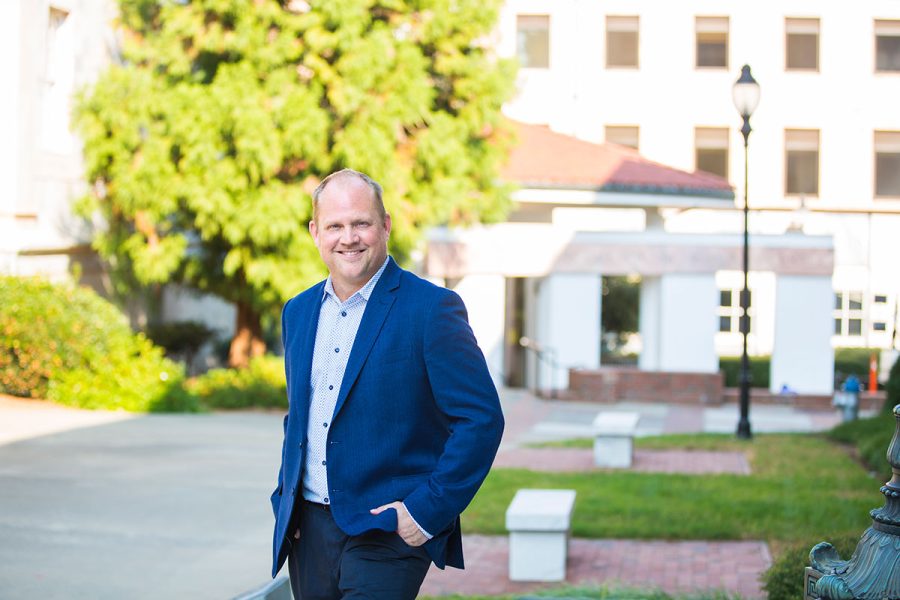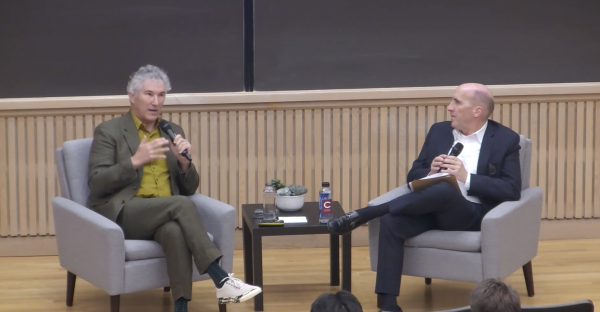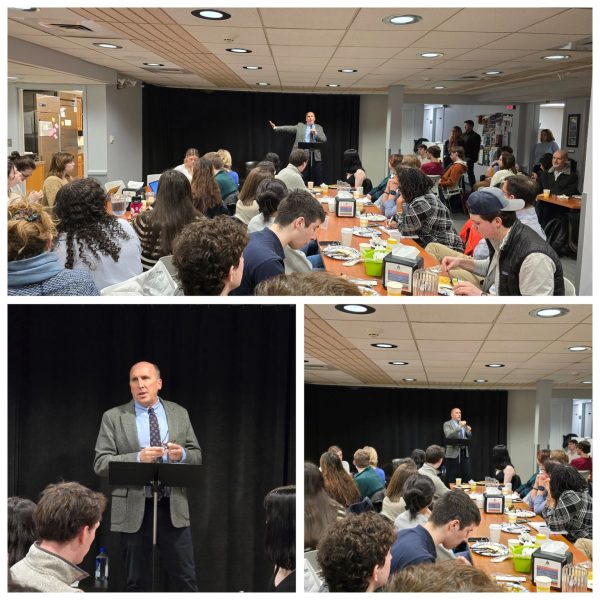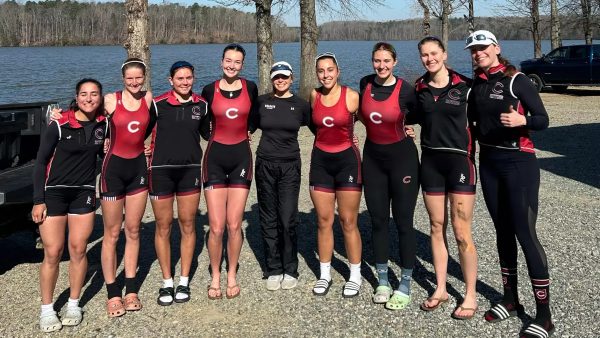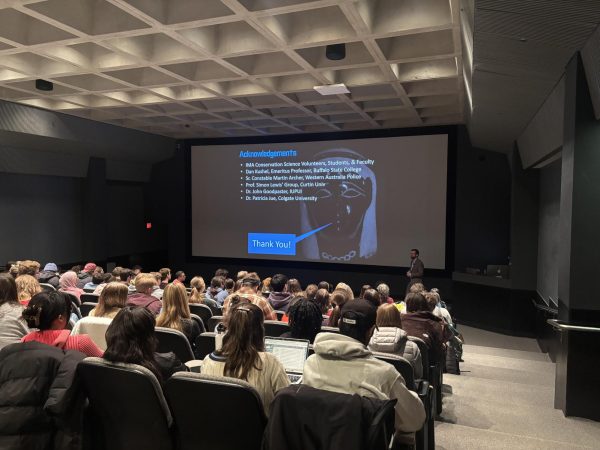James Hoesterey Explores Implications of Indonesia’s ‘Moderate Islam’ During Religion Lecture
James Hoesterey, associate professor of Islamic studies at Emory University, delivered a lecture in Lawrence Hall at Colgate University titled “Faith in Diplomacy: Soft Power and the Making of ‘Moderate Islam’ in Indonesia” on Thursday, Apr. 6. Hoesterey, the author of “Rebranding Islam: Piety, Prosperity, and a Self-help Guru,” also discussed his current research on diplomacy and moderate Islam.
Megan Brankley Abbas, assistant professor of religion at Colgate University, invited Hoesterey to speak.
“I assign [Hoesterey’s] work in several of my classes at Colgate. As a result, it was great to have him on campus so that we could chat about our ongoing research and so that he could share his work with students in both my Religion and Core classes,” Abbas said.
Hoesterey began the talk by discussing the idea of a moderate Muslim in a Western, post-9/11 society.
“One of those answers with respect to the American war on terror has been to privilege the so-called ‘moderate Muslims’,” Hoesterey said. “To use this term ‘moderate Islam’ puts a burden on Muslims because it requires some kind of self-justification of religion — as if religion is necessarily the driving ideology behind different forms of violence or political discontent.”
After dissecting prevailing Western views on Islam, Hoesterey transitioned to discussing the Muslim-majority country Indonesia and how Indonesian Muslims view the idea of moderation.
“I want to look at how Muslims themselves, from a kind of internal perspective and a diverse perspective, think about moderation and how [they] understand this in the context of a broader war on terror,” Hoesterey said.
Hoesterey detailed the past 25 years of Indonesian political history, beginning with the fall of the dictator Suharto in 1998.
“[One sees] the open expression of Islam in political ways that was not allowed under his rule,” Hoesterey said.
After continuing to describe the political turmoil that followed Suharto’s fall, Hoesterey gave an insight into the Indonesian diplomatic strategy that followed this era and was born out of the success of the nation.
“Indonesia is basically saying, ‘Look. We are the model for the good Muslim,’” Hoesterey said. “This is a certain kind of diplomatic strategy about Islam not as a religion, not as an ideology, but as a brand, as something that is part of Indonesia’s image that they are trying to maintain and support.”
Hoesterey also discussed the problems with the image Indonesia is pushing on the global stage and the inconsistencies between that image and the beliefs of some political leaders.
“One of the problems with Indonesia, especially some of its leaders, promoting itself as the home of moderate Islam is that you have analysts from outside saying this is a joke,” Hoesterey said.
Hoesterey ended the talk with the story of an Indonesian mosque built in Washington, D.C., and the acceptance of the community surrounding the mosque.
“There have been real connections and relationships at the person-to-person level,” Hoesterey said.
The lecture ended with a Q&A section, where attendees were encouraged to engage with Hoesterey.
Abbas enjoyed Hoesterey’s lecture and found the topics covered interesting and applicable to the students in attendance.
“I found Prof. Hoesterey’s lecture really engaging,” Abbas said. “He presented insights and highlights from his nearly 10 years of fieldwork on Indonesian religious diplomacy in a way that was both nuanced and accessible for the undergraduates in the audience. Indonesia is often left out of conversations about Islam and foreign policy in the United States, so his research and lecture helped students position the world’s most populous Muslim country (Indonesia) into broader conversations about post-9/11 international relations in the Islamic world.”
Sophomore Alessia Cawley attended the lecture for her class The World’s Religions, RELG 101.
“I thought [Hoesterey’s] talk was very interesting, as it related to the overall normative social construction of religious groups by the West,” Cawley said. “The questions relating to the ‘moderate’ sects were especially helpful as they clarified concepts we have read about.”
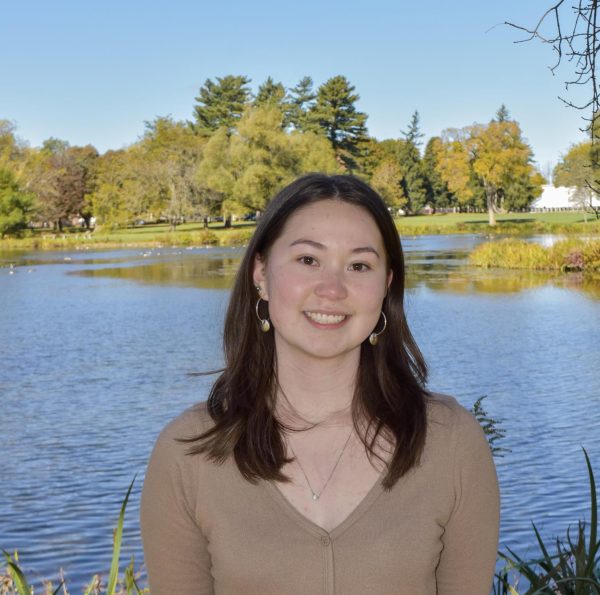
Samantha Wotring is a senior from Houston, Texas, majoring in English creative writing and history. She has previously served as an Assistant News Editor...


